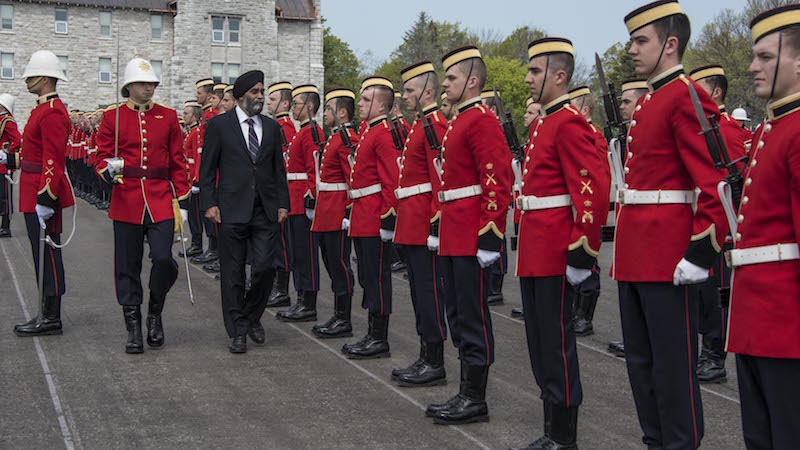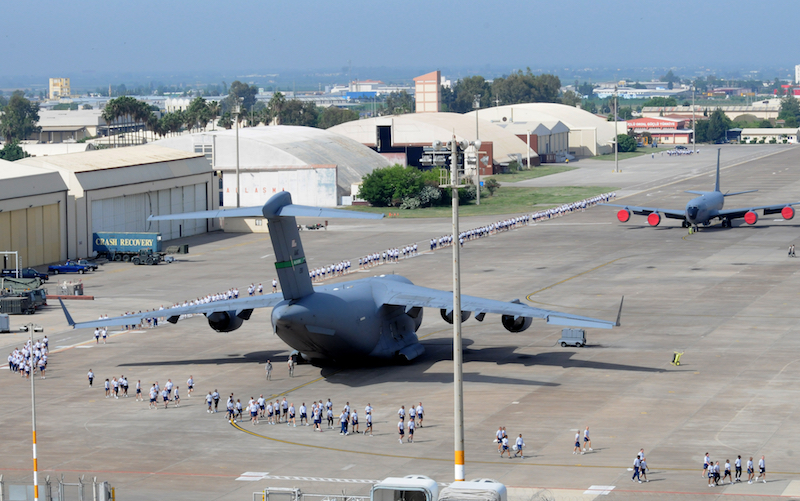It is an event that will forever be marked as a turning-point in Canadian history. October 22, 2014, will be recorded as the day that transformed Canada from a country with a strong, pacifist character, to a nation with a now more heightened sense of awareness with regards to its vulnerability to security concerns. The dreadful shooting of Cpl. Nathan Cirillo, of the Argyll and Sutherland Highlanders of Canada, a CF Reserves regiment based in Hamilton, and the subsequent shooting within Canada’s parliament was a chilling symbol of Canadian democracy being put to its ultimate test. The death of an unarmed guard, symbolically protecting the Tomb of the Unknown Soldier, followed by the chaos within the halls of parliament, not only brought the nation to a standstill, but forced many to question if such an event marked the death of Canada’s core values and principles.

Reflecting on the day’s events, Liberal leader Justin Trudeau dispelled such fears, stating “today we heard about a loss of innocence in Canada. This is inaccurate.” While it may be true that Canada has not lost its innocence, overnight the country has been forced to grow up. Canada is now faced with a new reality; it is no longer immune to the type of attacks it is so used to witnessing outside of its borders. This wake-up call has forced Canadians to accept that the possibility of being subject to such aggression has gone from the abstract to the concrete, from being an “overseas problem” to now being “our problem.” While the media has been quick to question Canada’s position as a peaceful, open and placid society, it is important not to overreact. Canada is certainly more alert and more aware to the new realities it now faces, but the country is in no way heading towards a future of rigid oppression or intense paranoia. No matter how shaken it may be, Canada’s democracy will not be ripped apart, nor will the way of life of its citizens be taken away.
The event surrounding the horrific shooting within the nation’s capital may have incited fear and anger, but it was faced with a response that was quintessentially Canadian. From the immediate reaction of bystanders who rushed to provide assistance to Corporal Cirillo after he was shot in cold blood, to the coordinated effort between first responders to safeguard all those under lock-down, along with the heroic actions made by Sergeant-at-Arms Kevin Vickers who risked his life to protect his colleagues and shoot the attacker, people behaved sensibly. The day must not be viewed solely as one to mourn, but should also be remembered as a day of Canadians helping and protecting fellow Canadians.
During and immediately after the attack, there was no mention of the event representing the effects of a failed government or a declining state; instead words of praise and gratitude were directed towards the individuals who jumped into action, determined to ensure the safety of all involved. The day following the attack, the nation’s MPs returned to work, and in a show of complete solidarity, walked across the parliament floor and hugged members of the opposition.
If there is anything to be learned from the violence which took place on parliament hill, it is what it means to be a Canadian. Being a Canadian means demonstrating courage and sacrifice in the midst of fear and confusion, forming a sense of unity while being confronted by disorder, and exhibiting the resolve to remain strong, determined and proud no matter the strength of the adversity. From this point forward, being a Canadian should also mean not taking our country’s security for granted.
Being a Canadian means demonstrating courage and sacrifice in the midst of fear and confusion, forming a sense of unity while being confronted by disorder, and exhibiting the resolve to remain strong, determined and proud no matter the strength of the adversity.
In the weeks to come, the country will undoubtedly bicker over increased security, gun-control, and homegrown terrorism, but it is important that Canadian citizens not lose track of how lucky they are to live in a society where their democracy is valued to such an extent that those representing them in government remain determined to continue to advocate for such freedoms and liberties no matter the intimidation or antagonism they face. Lest we forget that we are so very lucky to be Canadian.
Those who question the future of Canada do not understand the strength of the Canadian character. If anything, the events of October 22, 2014, will bring the country closer together. In the eyes of the people, the country’s flag will be raised a little higher, the national anthem will be sung a little louder, and citizens from coast-to-coast will have a deeper understanding of what it truly means to be Canadian. Hannah Styffe




